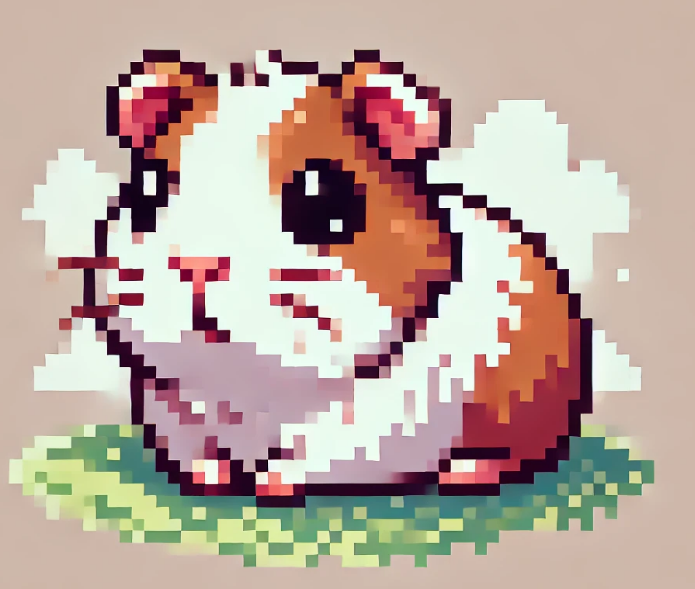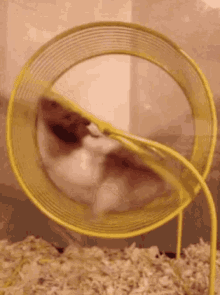
Why Your Pet Rodent Deserves VIP Healthcare (And How Science Backs It Up)
We all love our furry little friends, whether they’re guinea pigs, hamsters, rats, gerbils, or mice. But when was the last time you thought about their healthcare beyond a fresh water refill and a cozy enclosure? A new study reveals some surprising truths about how rodent owners approach vet visits, insurance, and overall care—and let’s just say, some of us might have some learning to do!
The Big Takeaway: Rodents Are Not Disposable Pets
For years, rodents have been seen as “starter pets”—cute, low-maintenance companions for kids. But this study proves otherwise: owners who see their rodents as true family members are more likely to notice health issues early, seek veterinary care, and even invest in pet insurance.
Shocking Stat: 77% of rodent owners have taken their pet to the vet at least once—but those who bought their pet for a child were significantly less likely to seek care. That’s a major red flag for pet welfare!

Think You’d Spot If Your Pet Was Sick? Think Again.
Unlike dogs and cats, rodents are experts at hiding illness. Evolution has trained them to mask symptoms—after all, in the wild, looking weak means becoming lunch. So, if you’re waiting for obvious signs to book a vet visit, you might already be too late.
Who’s the Best at Spotting Illness?
- Rat owners had the highest confidence in recognizing sickness.
- Hamster owners? Not so much. Hamsters are nocturnal, which makes catching subtle health changes tricky.
- Guinea pig parents were somewhere in the middle—but get this: they were more likely to rush to the vet for skin parasites than for serious issues like anorexia (a major warning sign in rodents). Yikes!
Why Exotic Vets Are Worth Every Penny
Not all vets are created equal—especially when it comes to treating rodents. The study found that owners who visited an exotic specialist vet had way more confidence in their pet’s diagnosis and treatment. But here’s the catch: these specialists are harder to find and more expensive.
Owner Confessions:
- “They knew exactly what was wrong and had the right meds. Totally worth it!”
- “Specialists are great, but the cost? Ouch.”
- “I was expecting more compassion. It felt rushed and cold.”
Pet Insurance: Is It Worth It for a Tiny Pet?
Okay, let’s be real: most rodent owners don’t have pet insurance (only 4% do). But would they be willing to get it? The study says:
- 38% would consider it—especially younger owners (18–24 years old)
- 57% said no way, citing extra monthly costs
- Who’s most likely to insure? Guinea pig owners, likely because their pets live longer (5–7 years, compared to 2 years for rats).
The problem? There aren’t many pet insurance options for rodents. And if owners don’t know coverage exists, they won’t get it.

The Kid Factor: Why Rodents Bought for Children Get Less Care
One of the most eye-opening findings? Owners who bought their rodent for a child:
- Had lower confidence in recognizing illness
- Were less likely to take them to the vet
- Spent less on veterinary care and medications
- Were less likely to get pet insurance
If that sounds familiar, it’s time for a wake-up call: these little guys deserve just as much love and care as any other pet!
How to Be the Best Rodent Parent Ever (Science-Approved Tips!)
Want to make sure your tiny companion gets top-notch care? Here’s how:
✅ Schedule regular vet visits. Don’t wait for signs of sickness—rodents deteriorate fast.
✅ Learn their subtle illness cues. Less activity, weight loss, or changes in appetite = 🚨
✅ Consider an exotic specialist vet. They know way more about rodent health than general vets.
✅ Budget for care. Even small pets can have big medical bills!
✅ Think about pet insurance. If you’d pay for emergency care anyway, insurance can soften the blow.
Share Your Story!
What’s the best health tip you’ve learned for your pet rodent? Have you ever taken them to an exotic vet? Drop your experiences in the comments and let’s swap stories!
Final Thought: Your tiny pet isn’t just a “starter” animal. They’re a family member. And with just a little extra effort, you can make sure they live their happiest, healthiest life.




